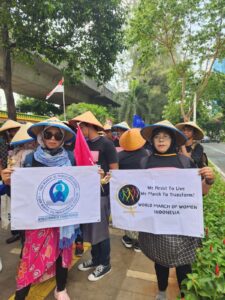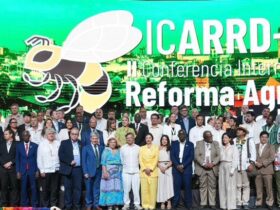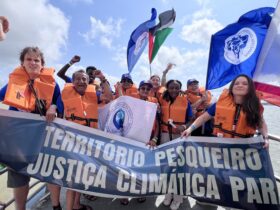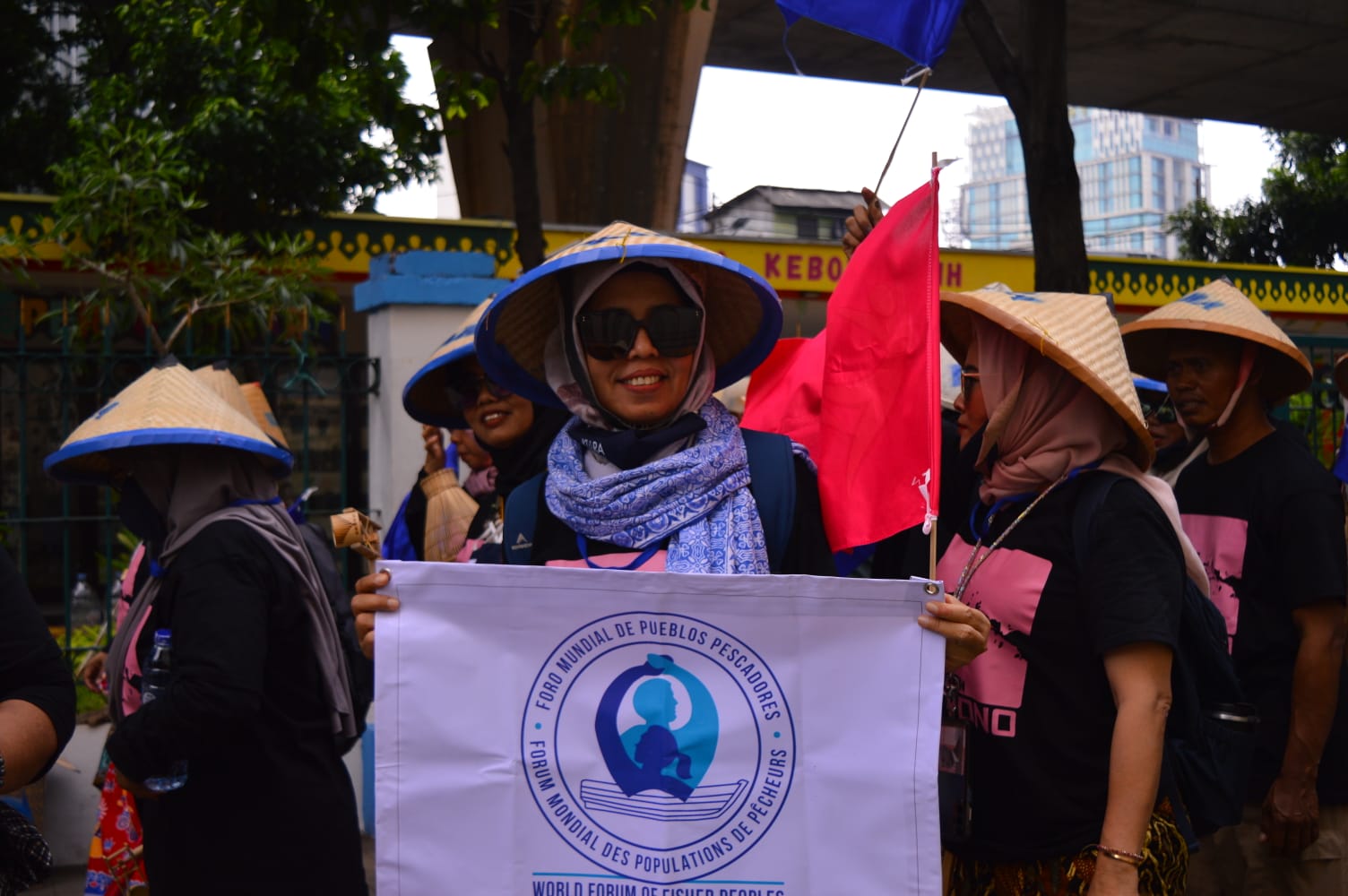Jakarta, Indonesia – November 12, 2024
During two periods of Joko Widodo as president of Indonesia, ocean grabbing case have been increasing under a large umbrella called the Blue Economy. Through the Blue Economy scheme, Indonesia is trying to encourage economic growth, development, conservation and sustainability of natural resources. The ocean grabbing occurs through expansion many projects of conservation areas; reclamation projects; sand, coal and nickel mines; tourism projects; and expansion of shrimp cultivation.
 Beside of that, coastal communities and small islands feel the threat of intimidation and criminalization from law enforcer apparatus and companies or private sector, as experienced by communities on Rempang Island, Wawonii Island, Sangiang Island and Pari Island.
Beside of that, coastal communities and small islands feel the threat of intimidation and criminalization from law enforcer apparatus and companies or private sector, as experienced by communities on Rempang Island, Wawonii Island, Sangiang Island and Pari Island. Based on the situation that faced by coastal communities and small islands (both women and men), KIARA together with fisherfolk networks such as the Indonesian Fisherwomen Sisterhood/PPNI and the Indonesian Fisherfolk Union/SNI held a Marine Fisherfolk Festival with theme “Encouraging Indonesia Marine Sovereignty for Fisherfolk Welfare”. This activity was held in Jakarta on 8-10 October 2024, inviting more than 70 fisherfolk and fisherwomen from 19 provinces in Indonesia.
Based on the situation that faced by coastal communities and small islands (both women and men), KIARA together with fisherfolk networks such as the Indonesian Fisherwomen Sisterhood/PPNI and the Indonesian Fisherfolk Union/SNI held a Marine Fisherfolk Festival with theme “Encouraging Indonesia Marine Sovereignty for Fisherfolk Welfare”. This activity was held in Jakarta on 8-10 October 2024, inviting more than 70 fisherfolk and fisherwomen from 19 provinces in Indonesia.In this activity we collaborated with Trend Asia, Indonesian Legal Aid Foundation/YLBHI, Indonesia for Global Justice, Bina Desa, PIKUL, ICCA’s Indonesia Working Group/WGII, Team 9, and Participatory Mapping Working Network/JKPP. Beside of that, this activity is supported by the World Forum of Fisher People/WFFP and the World March of Women/WMW.
Participants from fisherfolk and fisherwomen mentioned various problems that faced in grassroots level, such as exploitation of 17 billion cubic meters of sand sedimentation; 90 hectares reclamation project in Manado, North Sulawesi; 1084 hectares reclamation project in Surabaya, East Java; nickel mines on Wawonii Island and Torobulu Village in Southeast Sulawesi; or expansion of shrimp ponds which pollute the productive areas of the community in Jeneponto, Southeast Sulawesi and the criminalization case faced by an environmental activist from Karimun Jawa, Central Java. These cases are only a small snapshot of ocean grabbing cases that occur in Indonesia.
Series of activities were carried out at this event, such as audiences with Ministry of Environment and Forestry and Ministry of Villages. Apart from that, participants also protested in front of the Ministry of Marine Affairs and Fisheries as a form of resistance to exploitation that happened in coastal and small island through permits that issued by the Ministry of Marine Affairs and Fisheries. 10 representatives from fisherfolk and fisherwomen were accepted to have an audience with staff from the Ministry of Marine Affairs and Fisheries, but the results were very disappointing. Staff from the Ministry of Marine Affairs and Fisheries only noted the cases that mentioned by fisherfolk and fisherwomen but did not provide positive commitments to coastal communities in general.
However, every participant who attended this activity was committed to continue building a grass roots movement that was strong, educated, organized and sovereign. Resist!
Written by-Susan Gui,KIARA



